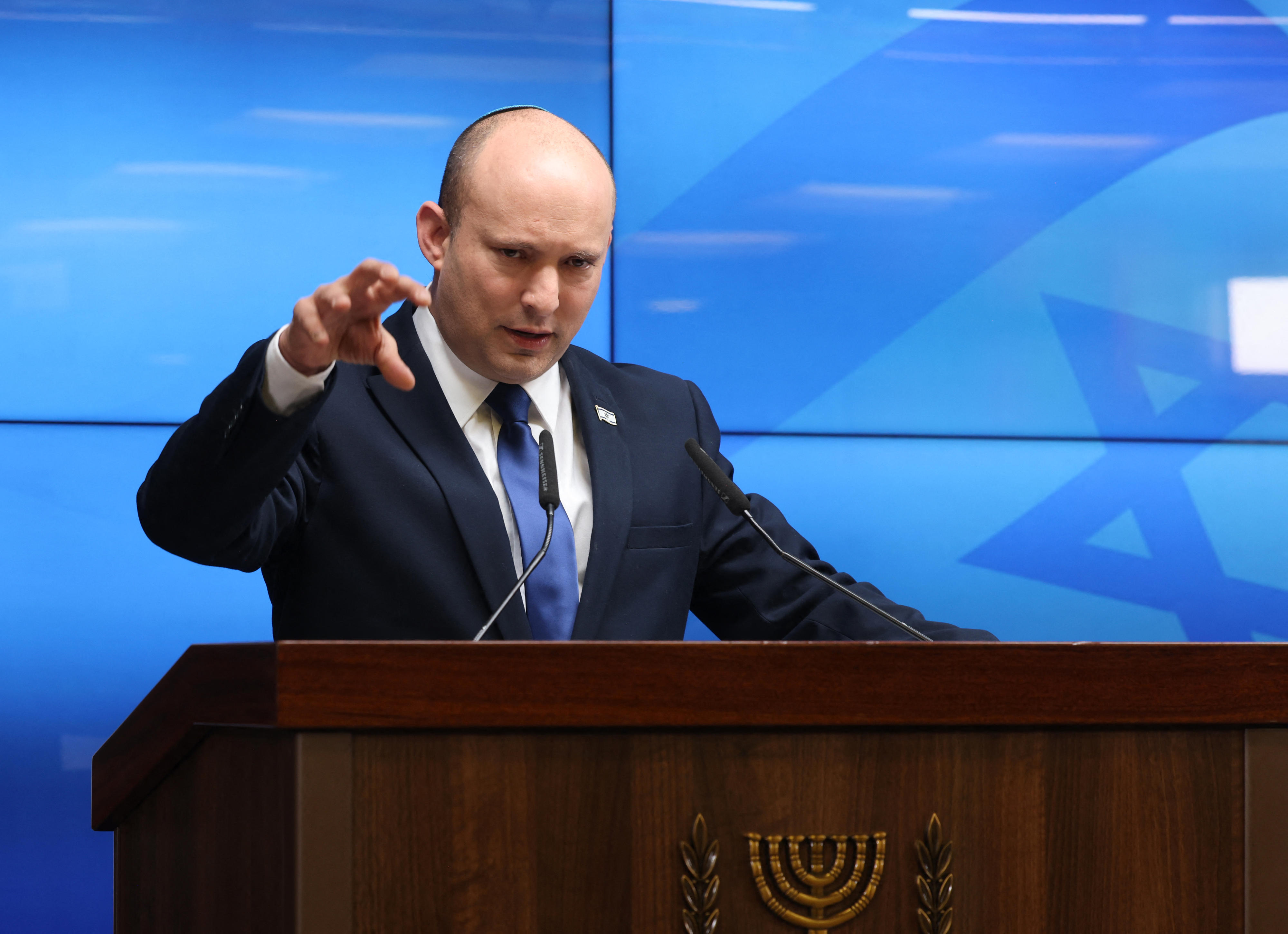
Mr Michael Lotem, Israel’s ambassador to Uganda. PHOTO/ RACHEL MABALA
|People & Power
Prime
Envoy talks about Israel’s human rights record, ambitions in Africa
What you need to know:
- Under criticism. Mr Michael Lotem, Israel’s ambassador to Uganda who is based in Nairobi, Kenya, has been in the job for five months.
- He had an interview with Derrick Kiyonga in which he discussed Israel’s human rights record and its ambitions in Africa, inter alia.
It has been five months since you arrived in Nairobi. How have you found the job?
Exciting. I was looking to come back to Africa after 30 years since my first posting in Africa – Swaziland – at the beginning of my diplomatic career.
In 2020, then Israeli prime minister Benjamin Netanyahu was here. Can you assess the relations between Uganda and Israel since that time…
I don’t want to give you the usual diplomatic answers: Because the usual answer is that we have good relations. But I can give you something similar but with full honesty. On both sides, I can say we have close sincerity in the sense that when we sit at the table we say what we think and we think what we say, which is not always the case. We get political support from Uganda, from the President [Museveni]. I must personalise this very much and we support Uganda in many areas. In some areas, nothing much has been happening for the last two years because of Covid-19. In some [areas] things boomed: You know Israel tech boomed well in the last two years. But in Africa, we did less during Covid-19.
There was a discussion about Uganda getting a fully-fledged embassy. Any development in that discussion?
If you google the MFA [Ministry of Foreign Affairs] Union you will see that we are not on strike, but on partial strike for more than a year because the budget has been cut dramatically. The budget we have can’t help in opening new embassies, but support the existing ones - both consulates and embassies. We have two schools of thought I must say: We have those who say we should open a mission where we can and then among those who think when you open a mission you should have the funds to do something because sometimes you can do more even with available funds when you are not located in that country. Of course, [when you have an embassy] you understand the country and people understand you differently when you are a resident within the country.
There was also a proposal of Uganda to put its embassy in Jerusalem (parts of this city are contested between the Israelis and Palestinians). Do you still think that Uganda should put that embassy in that city?
It has a very simple answer: Every country should open an embassy in the capital of another country. The only capital I know in Israel is Jerusalem.
Not Tel Aviv?
Tel Aviv was the capital during the first two years [of Israel’s reformation as a state] after that it was Jerusalem.
Before Covid-19, Israel was stamping its authority in Africa in terms of diplomacy. But when I looked at the figures for trade between Israel and sub-Saharan Africa it has gone down
I know you are trying to be diplomatic but I will be blunt: Yeah, many companies left East Africa. Not Africa, but East Africa. There are different reasons: disappointment in some areas of activity. We can’t compete in terms of engagement with big countries. We can certainly compete and win when it comes to quality, to technology, but not the cost of money, not the cost of labour. I mean that’s not our strength. You take an Israeli company not because they are the cheapest, you take it because you want work done and because you want top technology. Now when countries have their budget issues, which is understood, they choose other companies, not necessarily Israelis.
About Israel’s observer status in the African Union, at one point African countries withdrew it. How did you take that?
They didn’t withdraw it. They established a committee to withdraw it and your President [Museveni] – and we thank him – was a very, very strong supporter of Israel on this. Just a couple of [African] countries that put this issue on the table. Israel came to Africa with clean hands, the motivation is not because we could get from your arms, security guarantees, trade or political interest. We came because we saw the needs. We know what it means to be at the beginning of the world of development and we wanted to share knowledge.

Former Israeli prime minister Benjamin Netanyahu (left) is welcomed by President Museveni to Uganda in February 2020. PHOTO/ FILE
Israel insists that it’s a democracy but recently, Shireen Abu Akleh, an Al Jazeera journalist, was killed during clashes in the West Bank. The fingers are being pointed at Israel Defense Forces (IDF)
What we know now is that we don’t know. We know now that we offer the Palestinians a joint inquiry and pathological and forensic test. What we know and what was published is that the Americans offered the same to the Palestinians. What we know is that the minister from the Palestinian Authority [which controls West Bank] said it’s hard to determine, not the cause of death, but who shot the journalist. So, in this situation [where] you can’t determine, the most normal thing would be to create a joint investigation with an observer and anybody that can be chosen and you have to check. But the Palestinians even refused to submit the bullet [that ended Shireen Abu Akleh’s life] for a forensic test such that we can test and tell if it’s an Israeli rifle or not.
Let’s discuss spyware. NSO Group, an Israeli cyber-arms company, developed spyware called Pegasus that has sent shockwaves across the country. Investigations showed that Pegasus was used by Saudi and United Arab Emirates intelligence agencies to track dissident journalists Jamal Khashoggi before he was brutally murdered in Turkey. What do you have to say about this?
Look, intelligence equipment is developed all over the world and I’m glad Israel is one of the leaders. Every export of sensitive military equipment has to be approved by a special committee which has the ministry of foreign affairs, the ministry of defence, and some other bodies.
But somebody decides to violate the law, which we didn’t like. But we should distinguish between this and companies that develop intelligence equipment. I don’t want to wish any country or any citizen to leave in an environment where the law officers can’t gather relevant information, but I guess all of us here would want the law keepers to keep us safe.
Granted the problem is after the murder of Khashoggi do you think that Israeli companies should be allowed to sell such technology to countries with no regard for human rights?
It’s lawful to buy a gun in Israel, but it’s not lawful to kill someone. So you know, [when] you sell something there is a very strict procedure of getting a licence of export, believe me. I have been involved, I can tell you it is very strict. If you put in the container and ship it you must follow it the destination, but you know at the end of the day if somebody wants to violate the law, they violate it.
There are cases where we won’t even dare to sell certain pieces of equipment and many other places where we put lots of restrictions, and also verify to the best of our abilities. But you know at the end of the day the only place we govern is Israel, no other. So, we do the best we can but unfortunately, some Israeli companies get themselves into trouble when they don’t follow Israeli law.
You talked about Israeli politics being unpredictable and complex with coalitions collapsing. Do you think with the fluid nature of politics Israel will continue to focus on Africa?
There is consensus in Israeli politics about Africa. I don’t see any possible connection between which party leads the government and the activities in Africa. Not at all. We had the Labour, we had the Likud, we had the Yamina, and we had Yesh Atid. I don’t see any link [between politics and African policy]. It’s a consensus because we came to Africa without any ulterior interests – not internal or external.
There have been demonstrations in Europe and the US in which groups called Israel an apartheid state because of the way it treats the Palestinians. How do you respond to that?
You know we have members of the Knesset (parliament) of Israel, they are from all different religions. All different tribes, of Israel, speak different languages. We have in the army people from the whole spectra. On Independence Day every year -- May 5 – a special prize is given to outstanding people in Israel. Go and google the ceremony that took place this year and there you will see the whole of Israel represented - different origins, colours, and religions. That’s not an apartheid state.
Go and see who is leading in business if you can relate it to colour, religion, language, to country of origin. You can go to Wikipedia and read; this guy came from Ethiopia, this guy came from Moscow, this lady came from France.
View ... Claims of Israel being an apartheid state...
We have members of the Knesset (parliament) from all different religions. All different tribes of Israel speak different languages. We have in the army people from the whole spectra. Every Independence Day – May 5 – a special prize is given to outstanding people in Israel. Go and google and there you will see the whole of Israel represented.





